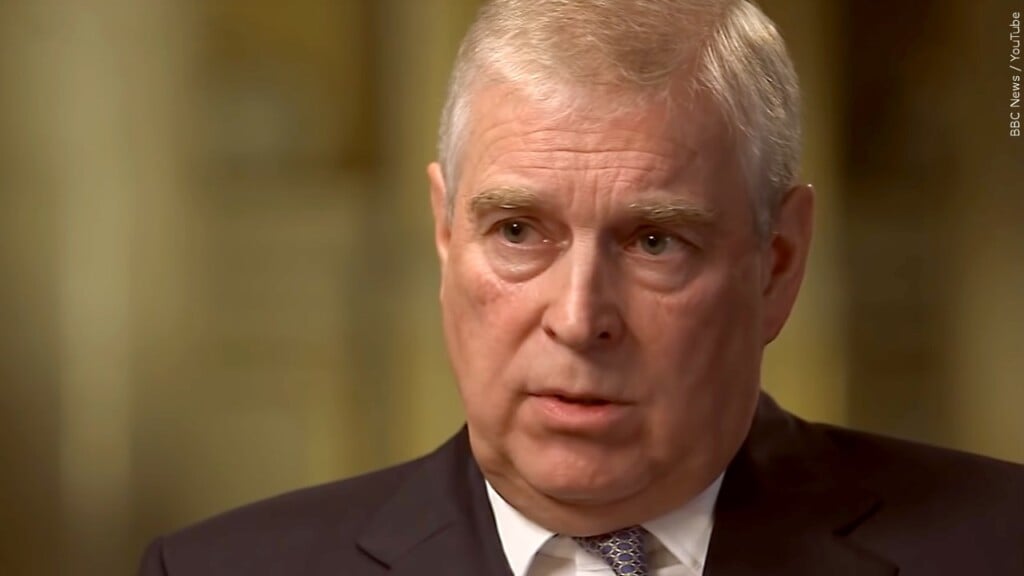Senate passes Trump’s big tax breaks and spending cuts bill as Vance breaks 50-50 tie

WASHINGTON (AP/WWAY) — Senate Republicans hauled President Donald Trump’s big tax breaks and spending cuts bill to passage Tuesday on the narrowest of votes, pushing past opposition from Democrats and their own GOP ranks after a turbulent overnight session.
Vice President JD Vance broke a 50-50 tie to push it over the top. The three Republicans opposing the bill were Sens. Thom Tillis of North Carolina, Susan Collins of Maine and Sen. Rand Paul of Kentucky.
The outcome capped an unusually tense weekend of work at the Capitol, the president’s signature legislative priority teetering on the edge of approval, or collapse.
The difficulty it took for Republicans, who have the majority hold in Congress, to wrestle the bill to this point is not expected to let up. The package now goes back to the House, where Speaker Mike Johnson had warned senators not to deviate too far from what his chamber had already approved. But the Senate did make changes, particularly to Medicaid, risking more problems as they race to finish by Trump’s Fourth of July deadline.
The outcome is a pivotal moment for president and his party, which have been consumed by the 940-page “One Big Beautiful Bill Act,” as it’s formally titled, and invested their political capital in delivering on the GOP’s sweep of power in Washington.
Trump acknowledged it’s “very complicated stuff,” as he departed the White House for Florida.
“I don’t want to go too crazy with cuts,” he said. “I don’t like cuts.”
What started as a routine but laborious day of amendment voting, in a process called vote-a-rama, spiraled into a round-the-clock slog as Republican leaders were buying time to shore up support.
The droning roll calls in the chamber belied the frenzied action to steady the bill. Grim-faced scenes played out on and off the Senate floor, amid exhaustion.
Senate Majority Leader John Thune of South Dakota was desperately reaching for last-minute agreements between those in his party worried the bill’s reductions to Medicaid will leave millions without care, and his most conservative flank, which wants even steeper cuts to hold down deficits ballooning with the tax cuts.
The GOP leaders have no room to spare, with narrow majorities. Thune can lose no more than three Republican senators, and already two — Tillis, who warned that millions of people will lose access to Medicaid health care, and Paul, who opposes raising the debt limit by $5 trillion — had indicated opposition.
Attention quickly turned to two key senators, Lisa Murkowski of Alaska and Collins, who also raised concerns about health care cuts, as well as a loose coalition of four conservative GOP senators pushing for even steeper reductions.
Murkowski in particular became the subject of the GOP leadership’s attention, as they sat beside her for talks. She was huddled intensely for more than an hour in the back of the chamber with others, scribbling notes on papers.
Then all eyes were on Paul after he returned from a visit to Thune’s office with a stunning offer that could win his vote. He had suggested substantially lowering the bill’s increase in the debt ceiling, according to two people familiar with the private meeting and granted anonymity to discuss it.
Senate Democratic Leader Chuck Schumer of New York said “Republicans are in shambles because they know the bill is so unpopular.”
An analysis from the nonpartisan Congressional Budget Office found 11.8 million more Americans would become uninsured by 2034 if the bill became law. The CBO said the package would increase the deficit by nearly $3.3 trillion over the decade.
And on social media, billionaire Elon Musk was again lashing out at Republicans as “the PORKY PIG PARTY!!” for including the $5 trillion debt ceiling in the package, which is needed to allow continued borrowing to pay the bills.
Senators insist on changes
Few Republicans appeared fully satisfied as the final package emerges, in either the House or Senate.
Collins had proposed bolstering the $25 billion proposed rural hospital fund to $50 billion, offset with a higher tax rate on those earning more than $25 million a year, but her amendment failed.
And Murkowski was trying to secure provisions to spare people in her state from some food stamp cuts, which appeared to be accepted, while she was also working to beef up federal reimbursements to hospitals in Alaska and others states, that did not comply with parliamentary rules.
“Radio silence,” Murkowski said when asked how she would vote.
The conservative senators demanding a vote on their steeper health care cuts, including Rick Scott of Florida, Mike Lee of Utah, Ron Johnson of Wisconsin and Cynthia Lummis of Wyoming, filed into Thune’s office near-midnight.
What’s in the big bill
All told, the Senate bill includes $4.5 trillion in tax cuts, according to the latest CBO analysis, making permanent Trump’s 2017 rates, which would expire at the end of the year if Congress fails to act, while adding the new ones he campaigned on, including no taxes on tips.
The Senate package would roll back billions of dollars in green energy tax credits, which Democrats warn will wipe out wind and solar investments nationwide. It would impose $1.2 trillion in cuts, largely to Medicaid and food stamps, by imposing work requirements on able-bodied people, including some parents and older Americans, making sign-up eligibility more stringent and changing federal reimbursements to states.
Additionally, the bill would provide a $350 billion infusion for border and national security, including for deportations, some of it paid for with new fees charged to immigrants.
Democrats fighting all day and night
Unable to stop the march toward passage, the Democrats tried to drag out the process, including with a weekend reading of the full bill.
A few of the Democratic amendments won support from a few Republicans, though almost none were passing. More were considered in one of the longer such sessions in modern times.
One amendment overwhelmingly approved stripped a provision barring states from regulating artificial intelligence if they receive certain federal funding.
Sen. Patty Murray of Washington, the ranking Democrat on the Appropriations Committee, raised particular concern about the accounting method being used by the Republicans, which says the tax breaks from Trump’s first term are now “current policy” and the cost of extending them should not be counted toward deficits.
She said that kind of “magic math” won’t fly with Americans trying to balance their own household books.
(WWAY) — U.S. Senator Ted Budd (R-N.C.) released the following statement after voting in support of President Trump’s One Big Beautiful Bill Act, historic legislation that lowers taxes for families, makes America safer and more secure, and unleashes economic growth for the future:
“I voted in favor of the One Big Beautiful Bill Act because the people of North Carolina deserve more of their hard-earned wages, a more secure border, a reinvigorated military, responsible spending reforms for government programs, and a thriving economy. My colleagues and I fought successfully to protect North Carolina’s tobacco growers to help them stay competitive with China. I am also grateful that this bill included my PELL Act, which will help Americans earn in-demand credentials for rewarding careers. I hope my colleagues in the House quickly get this bill on President Trump’s desk because Americans cannot afford the largest tax increase in our nation’s history,” said Sen. Budd.
Sen. Budd’s office released the following summary of how they believe the bill would benefit the nation:
Provides Unprecedented Tax Relief for Families
- This legislation helps Americans keep more money in their pockets by extending key provisions of President Trump’s 2017 Tax Cuts and Jobs Act. Preventing the largest tax increase in American history will save the average North Carolinian $2,474 in 2026.
- Working families will receive significant savings with the increase and permanence of the child tax credit, expanded tax credits for paid leave, enhanced 529 savings accounts, and additional childcare access.
- This legislation lowers taxes for seniors relying on Social Security.
Gives Workers the Tools They Need to Advance Their Careers
- Sen. Budd fought to have his PELL Act included in this legislation, a provision that expands Pell Grant eligibility for high-quality, short-term workforce programs. This would benefit individuals seeking to advance their careers without long-term debt while also providing American businesses with a broader, better-prepared talent pool ready to meet the demands of a rapidly evolving economy.
Protects North Carolina Agriculture
- Sen. Budd successfully defended tobacco’s eligibility to receive the “duty drawback,” allowing tobacco manufacturers to receive reimbursement for the tariffs they pay on materials used to produce tobacco products that they ship to international markets. This will protect North Carolina growers and prevent the tobacco market from being flooded with cheaper, lower-quality products from China and Brazil.
- This legislation provides serious tax relief for North Carolina farmers by raising the death tax exemption, ensuring family farms can be passed down to future generations, rather than being broken up and sold.
Unlocks Economic Growth & American Manufacturing
- This legislation will create a renaissance in American manufacturing by delivering full expensing for companies that build new factories and invest in equipment and machinery. This will help create new, good-paying jobs.
- By enhancing the small business deduction and making it permanent, small businesses will be able to hire more workers.
- Increasing deductions for small businesses’ equipment and property will quickly help businesses grow.
Reduces Government Spending to Preserve & Protect Government Programs
- This legislation contains the first structural reforms to address waste, fraud, and abuse in key government programs like SNAP and Medicaid in over three decades. Slowing the rate of exponential cost increases will result in significant deficit savings and will preserve and protect these programs for future generations.
Invests in America’s National Defense
- Sen. Budd helped secure funding to boost manufacturing capacity for the next generation of the F-15, the F-15EX, which will sustain the training mission at Seymour Johnson far into the future.
- This legislation also includes significant funding to enhance America’s air superiority by preventing the retirement of the F-15E aircraft flying out of Seymour Johnson Air Force Base.
- America’s troops deserve a pay raise. This legislation increases pay and allowances while making improvements to housing, healthcare, childcare, and education.
- This legislation makes generational investments in our military readiness that will protect the American homeland and deter our adversaries by boosting America’s missile defense by building the “Golden Dome.”
- Sen. Budd worked to secure investments to improve housing at Fort Bragg and Seymour Johnson and funds for restoration and modernization at Camp Lejeune.
- This legislation creates new production lines to scale innovative, cost-effective munitions, so we are no longer shooting $4M missiles at $50,000 drones.
- This legislation makes the largest ever investment in the Coast Guard’s history, which will purchase more than 40 new helicopters and six new C-130J aircraft, which will be serviced at the Aviation Technical Training Center in Elizabeth City. The legislation also funds 17 new icebreakers to protect American interests and 21 new cutters to combat drug runners and human traffickers.
Keeps America’s Border Secure
- While President Trump’s policies have resulted in a dramatic drop-off of illegal immigration, this legislation also boosts America’s border security by surging funding for 3,000 new Border Patrol agents and 10,000 new ICE agents. The One Big Beautiful Bill also increases funding to finish President Trump’s border wall.
Ushers in Next-Generation Technologies
- This legislation includes funding for the transformational air traffic control modernization project underway at the FAA. This will quickly update aging and failing technologies to keep Americans safe in the sky.
- This legislation makes a historic amount of spectrum available for commercial use, which will create new jobs and unleash the next generation of wireless technology. This will ensure America remains the premier destination for innovation and help unleash a new area of advanced manufacturing. This will also make the internet faster & more dependable across the country through commercial success stories like 5G, 6G, wi-fi, and private networks using CBRS.




